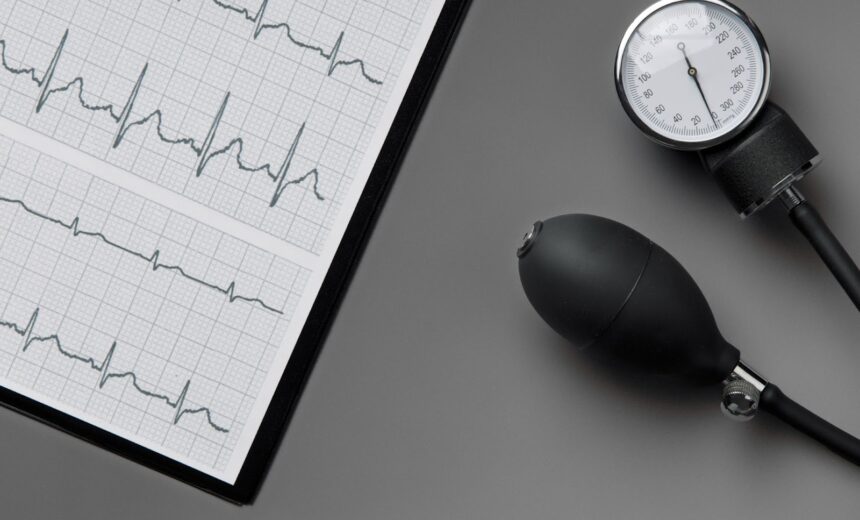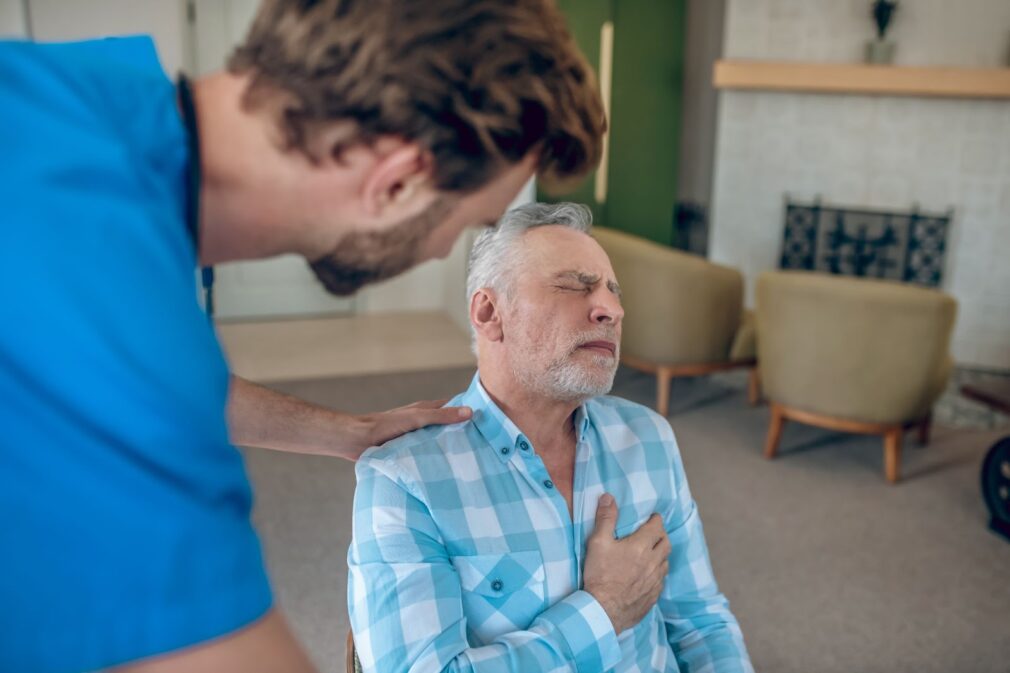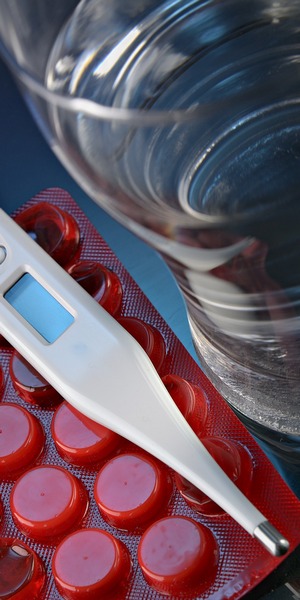When Is Hospitalization Necessary for Rapid Heart Rate?

In the realm of human well-being, few sensations can be as unsettling as experiencing a sudden surge in heart rate. It’s a moment when the natural cadence of life seems to veer off course, leaving us in a state of anxiety and uncertainty about the appropriate course of action. Is this merely a fleeting flutter of the heart, or could it potentially signify an underlying, more grave issue? Discerning the precise moment to seek medical attention for an accelerated heart rate emerges as a vital skill, as it could spell the difference between receiving prompt medical intervention and facing potential complications.
In this article, we shall delve into the various factors that contribute to a heightened heart rate, the telltale signs that serve as indicators for when a visit to the hospital becomes imperative, and the measures you can adopt to ensure that your cardiovascular health remains a top priority. Mastering the art of recognizing when to head to the hospital in the event of a rapid heart rate can genuinely be a lifesaving decision, and we are here to serve as your trusted guide throughout this journey.
Navigating the Complexities of Tachycardia
Tachycardia, a term that might sound complex, essentially refers to a condition where the heart beats faster than its usual rhythm. The conventional resting heart rate for adults typically hovers around 60 to 100 beats per minute. However, when the heart rate consistently exceeds this range, it can lead to a cascade of consequences that affect our cardiovascular health.
Tachycardia: Beyond the Basics
Tachycardia is more than just a speedy heartbeat; it’s a condition with the potential to disrupt the harmonious orchestration of our heart’s pulsations. While it doesn’t always signal immediate danger, it can set the stage for various health complications, ranging from mild to severe. Let’s delve deeper into this condition:
Understanding the Impact of Tachycardia:
- Heart Function: Tachycardia can strain the heart, potentially leading to weakening of the heart muscle over time;
- Blood Pressure: It can also elevate blood pressure, increasing the risk of hypertension and associated complications;
- Reduced Blood Supply: A racing heart may not pump blood effectively, reducing the oxygen supply to vital organs.
Deciphering the Multifaceted Symptoms of Tachycardia
Tachycardia doesn’t present a one-size-fits-all set of symptoms; rather, it showcases a spectrum of signs that can vary from subtle to alarming. For some, tachycardia might lurk in the background, unnoticed during their daily activities. Others may experience:
- Palpitations: An experience of the heart fluttering or racing within the chest;
- Breathlessness: Abrupt and unexpected difficulty in breathing, even when one is at rest;
- Rapid Pulse: Evident acceleration in the rhythm of the heartbeat;
- Lightheadedness: Intermittent episodes of feeling unsteady or dizzy;
- Chest Discomfort: Periodic sensations of pain or unease in the chest area;
- Loss of Consciousness: In severe instances, a loss of awareness may manifest, potentially resulting in fainting.
The Importance of Monitoring:
It’s crucial to stay vigilant and monitor any emerging symptoms. If these symptoms deviate from your usual state or worsen over time, seek medical attention promptly.
Identifying Critical Junctures: When to Escalate to Emergency Care
Tachycardia sometimes roars rather than whispers, indicating a potentially life-threatening cardiac emergency. It’s vital to distinguish when you need immediate medical help:
- Acute Respiratory Distress: If you experience severe breathing difficulties;
- Chest Pain: Especially if it’s oppressive or stabbing;
- Fainting: Loss of consciousness due to a rapid heartbeat;
- Profound Dizziness: When dizziness compromises your ability to stand or walk;
- Muscular Weakness: An abrupt loss of strength.
Such symptoms may be harbingers of underlying conditions like heart disease, hypertensive crises, or even a myocardial infarction (heart attack). When these warning signs emerge, rapid medical intervention becomes imperative.
Intervening in the Face of Tachycardia: Approaches Adopted in the ER
In the emergency room, a well-coordinated approach to stabilize your condition takes center stage. Here’s what you can expect in terms of immediate intervention:

- Medication: Pharmacological agents may be administered to slow down your accelerated heart rate;
- Cardioversion: Strategic electric shocks may be used to reset the heart’s rhythm;
- Other Interventions: Depending on your condition, alternative treatments might be considered.
The ultimate goal is to decelerate the heartbeat and restore it to a regular, systematic rhythm.
Strategies for Prevention and Prolonged Oversight of Tachycardia
Preventing and managing tachycardia involves a holistic approach that blends prevention with long-term care. Here are some essential strategies to consider:
- Stress Management: Learn techniques to manage stress, as high stress levels can trigger tachycardia;
- Healthy Lifestyle Choices: Make mindful dietary choices and lifestyle changes to support heart health;
- Avoid Triggers: Steer clear of substances like caffeine and alcohol that can exacerbate tachycardia;
- Exercise Regularly: Engage in physical activity that promotes cardiovascular health;
- Prioritize Sleep: Ensure you get enough quality sleep for overall well-being;
- Balanced Diet: Consume a diet rich in fruits, vegetables, and lean proteins;
- Regular Check-ups: Stay connected with healthcare professionals for routine monitoring and adherence to prescribed treatments.
By actively engaging in these measures, you can build a robust defense against the progression of tachycardia and its potential complications, ensuring a healthier and more vibrant life.
Conclusion
In summary, the importance of discerning the appropriate moment to visit the hospital due to a swift heartbeat cannot be overstated when it comes to safeguarding your overall health and well-being. Although many episodes of rapid heart rates may be benign and resolve independently, there are critical situations that necessitate immediate medical attention. It is imperative that you rely on your instincts and promptly seek medical assistance if you encounter severe symptoms like chest discomfort, breathlessness, dizziness, loss of consciousness, or if your accelerated heart rate is accompanied by other worrisome indicators.
Moreover, the key to upholding cardiac health lies in preventive measures. Adopting a wholesome lifestyle, effectively managing stress, and staying well-informed about risk factors linked to heart conditions can significantly reduce the chances of encountering a rapid heart rate or other cardiac-related issues. Regular appointments with your healthcare provider serve as a valuable tool for monitoring your heart’s health and catching any potential problems in their early stages.
Ultimately, prioritizing the well-being of your heart should remain paramount. By comprehending the indicators and symptoms that necessitate a trip to the hospital due to a rapid heart rate, you can take proactive measures to shield your heart and ensure a future characterized by improved health and enhanced security.








